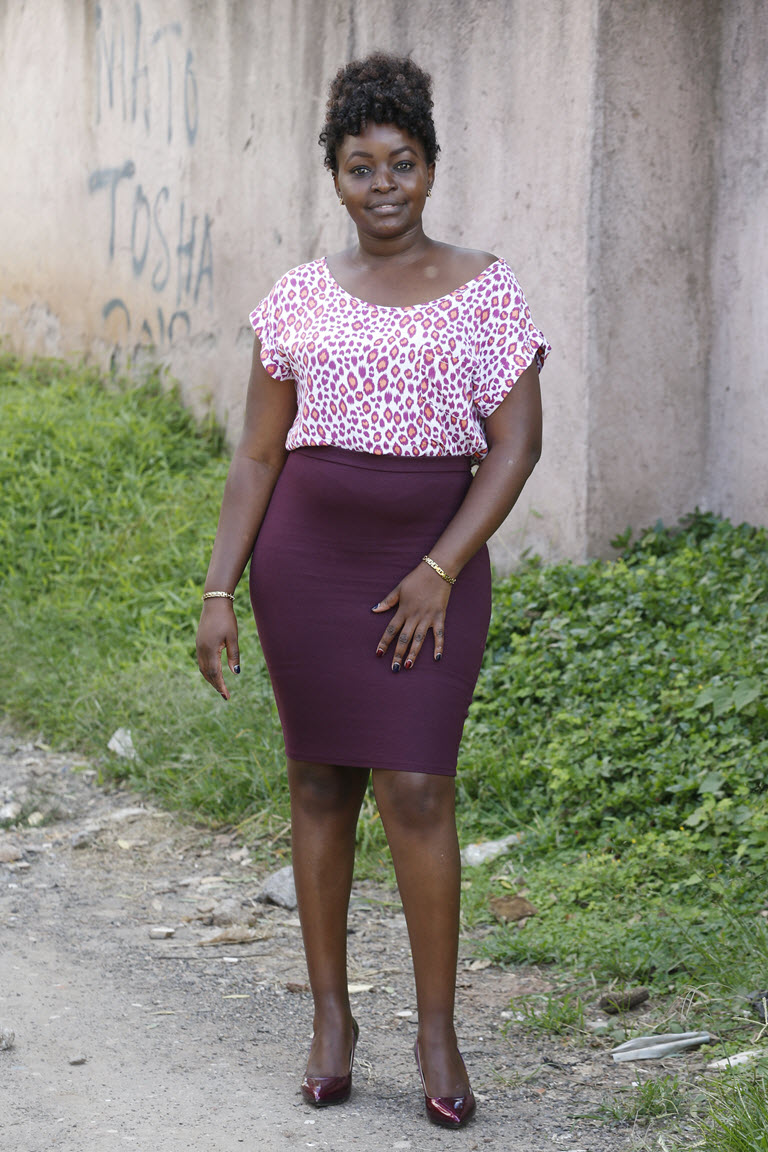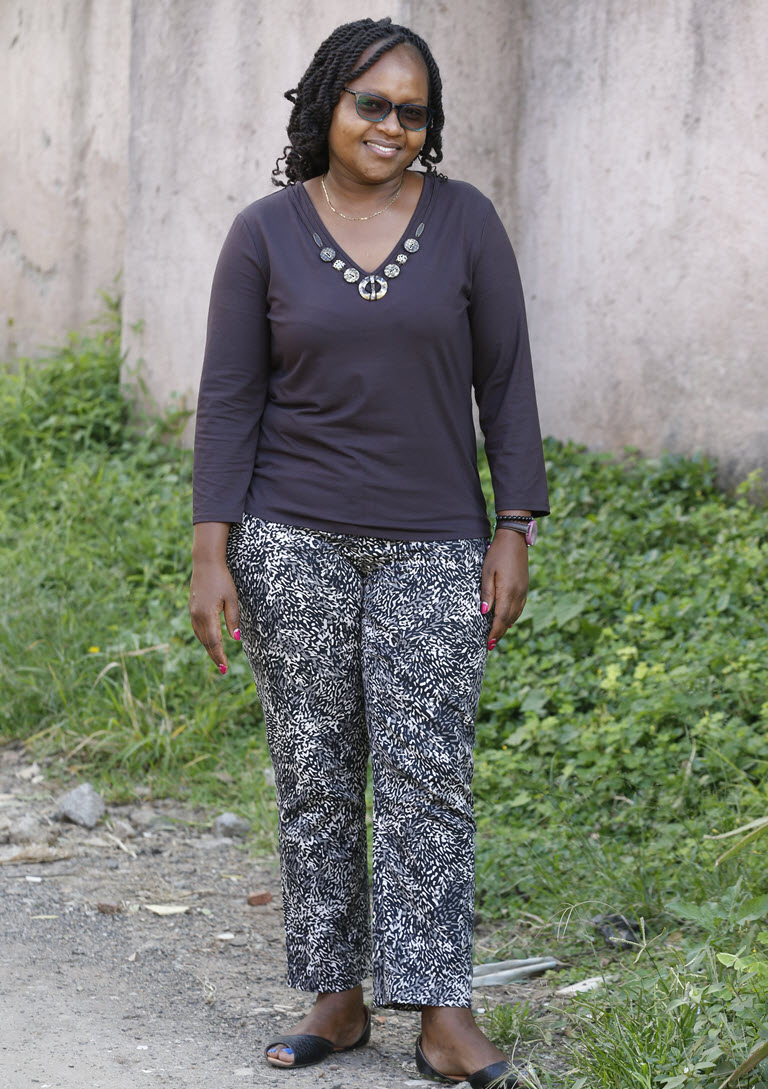The world is battling a pandemic at its worst moment – when it’s ill-prepared to tackle it. And, unfortunately, it has not exempted even the world’s developed economies with robust healthcare systems.
But beneath the harrowing tales that have gripped the world, a particular cadre of professionals – journalists – have largely been forgotten. Even as regimes devise mechanisms to conquer the pandemic, deliberations in boardrooms have mainly revolved around offering an extra layer of protection to medics, frontline workers, and those deemed most vulnerable – the elderly and those with pre-existing medical conditions.
Media professionals have largely been ignored, at least in the East African context. They have instead become an afterthought. Yet, despite being put on the back burner, they have braved it all. With great courage in the face of adversity, reporters have gone the extra mile to tell the story of the pandemic to the world.
They have risked their lives visiting Covid-19 patients in hospital wards, travelling far and wide to document and tell mostly depressing and, in some cases, uplifting stories. Tragically some have paid the ultimate price. Here are some Kenyan journalists who have survived to tell their story.
Gentrix Oduor: ‘We were thrown into the deep end – none was prepared’
Science and Health reporter at Radio Citizen, one of Royal Media Services radio networks, Oduor is one of the most accomplished radio health reporters. She has covered numerous health assignments for the health beat segment on Radio Citizen, from Nairobi, Marsabit and Tana River – to some of the far-flung arid areas of Kenya.
Naturally, with that kind of experience, she has developed a thick skin to deal with the shocks and dreadful tales that come with the job. However, nothing prepared her for Covid-19 reporting.
“I remember when the first case of Covid-19 was reported in Kenya (on March 13, 2020), I was at work. Everyone was shocked, and so was I,” Gentrix said. She confessed that, like everyone else, she did not know much about the virus, but the editorial management tasked her and her colleagues at health beat to cover the pandemic at the end of the day.
“I remember going to press briefings nearly every single day at Afya House (the headquarters of Kenya’s Ministry of Health). But, alarmingly, with each presser, the numbers – new infections and the death toll – kept rising,” Gentrix reminisces. The danger was that she would use public transport to and from work or the press briefings, incredibly exposing her to the risk of contracting the virus.

But that is not all; the most chilling part was that covering the pandemic required some form of preparedness. “We were thrown into the deep end. No one was prepared for this. Not our employer or even the government – we could all see that.”
She remembers some decisions that were made as mere reactions. “At work, too, we had challenges,” Gentrix added.
Looking back, she believes that the government could have implemented some of the directives, such as working from home much earlier. Such a move would have protected professionals at greater risk of contracting the virus, including journalists like her.
“We all knew it was inevitable. It caused trouble to many, and it still does. Covering the [health] beat has not only been challenging but eye-opening at the same time. I’d do lots of research by googling about the disease and its symptoms, but it was never enough at the end of the day,” Gentrix told the EAST site, adding that she wished they would have been well-briefed on this (Covid-19 coverage).
“Support measures, such as counselling, should probably have been given more consideration,” Oduor said, admitting that she’s lucky not to have contracted the virus at its peak when Kenya would record up to 1,800 cases daily.
With the virus ravaging, the government took stern measures like imposing a partial lockdown in Kenya’s capital Nairobi, and some other major cities to slow down the spread of the virus. However, this move directly affected the economy and destabilized businesses. Gentrix’s employer, like nearlly every major media house in Kenya imposed pay cuts as revenues shrunk
Presently, Oduor and most of her colleagues have been vaccinated against the virus, hoping that it will offer an extra layer of protection.
Tabitha Rotich: ‘There are people who still don’t believe the virus exists’
Like her colleague Gentrix, Tabita Rotich has been at the frontline covering Covid-19. Part of her task at the health beat is monitoring the global figures and trends and attending the Ministry of Health’s daily briefing. She also spends considerable time researching and debunking misconceptions about Covid-19. “It’s been tough, wrought with lots of challenges but also a learning curve,” Tabitha told the EAST site. “I think the government approach hasn’t been ‘A’ class, but they tried to rally the masses.”

Tabitha said the major challenge she faced while covering the pandemic was and still is the misconceptions. “There are people who didn’t and still don’t believe that the virus exists. So, as journalists, it became our duty to deconstruct the myths and tell the facts, with a view of informing, educating and empowering the masses,” she said.
The Kenyan government feted Tabitha for her in-depth reporting by awarding her the Uzalendo Award on June 1, 2020, when Kenya celebrated Madaraka Day (a day to mark Kenya’s self-rule attainment from the British colonial authorities).
Beldeen Waliaula: ‘Training health reporters will empower them’
For Beldeen Waliaula, a Health and Science Reporter at Standard Group, covering the pandemic was a welcome experience. “Having an interest in pursuing health stories, Covid-19 came as a saving grace,” Beldeen said. “When I started covering Covid-19 stories, it was not about the numbers, but how it has impacted people’s lives and the health sector. It was an exciting venture at first; talking to Kenyans and experts made me amass information every day.” She said she has never been afraid of contracting the virus but feels lucky not to have tested positive yet, with all the exposure.

But as she strived to tell the stories, Beldeen realized that she needed to change her approach at one point.
“By the end of last year, Covid-19 fatigue set in. Every day, it felt like you are repeating yourself just to avert the newsroom pressure of delivering stories daily,” Beldeen said, noting that the other challenge was the stigma. Very few people were open to talking about their experience with the virus, and there was no personal protective equipment for journalists going out to the field.
“I remember confronting our human resource department because the company could not provide an extra pair of facemask, yet I was being assigned to go to an area with high numbers of infections.”
According to Beldeen, the challenge to date is the lack of facilitation from newsrooms to cover stories, lack of protective equipment and training on how to continue covering these stories safely.
“The Kenyan media still greatly depends on the Ministry of Health for information on Covid-19, which sometimes is erratic and difficult to verify,” she added.
With the experience earned covering the pandemic, Beldeen has a word of caution to media professionals. “As a journalist, your mental health is critical. It’s okay to say no when it comes to covering stories that will negatively impact your health,” said Beldeen.
“I don’t cover mental health stories anymore, and when possible, I avoid ‘sorry or sad cancer stories. But, in addition to that, watching human beings suffer while seeking basic healthcare in a country they pay tax daily doesn’t sit well with me.” She is, however, convinced that training journalists on how to cover and report on the pandemic will go a long way in empowering them.
 Isaac Swila
Isaac SwilaReport by Aga Khan University’s Media Innovation Centre analyses the country’s millennials and digital natives’ media consumption habits.
For the media to flourish, and the society to have free flow of accurate and verifiable information, journalists, the drivers in the passing of information are expected to be well grounded in laws and the legal aspect pertaining to the job, writes Alfred Ganzo.
Pitching provides numerous opportunities for your new or existing business ideas to be discovered and realized; and as Simon Mtabazi writes, some startups have become billion-dollar companies due to efffevie pitches
The success you achieve with your media startup business will heavily rely on your reputation as a trustworthy company, and as Nandi Mwiyombella writes, it will also open a new window for customers and potential investors.
That’s why I think today is such a great space for us to sit back and reflect on the questions that could help us shape the kind of journalism that we want to see in our local and global community.
The report specifically analysed eight major variables which include: newsroom structure and resources, media ownership and business models, organisational capacity, innovation culture, journalism culture, financial trends and results, content quality and COVID-19.
Mudi, in her role as Media Council of Kenya regional coordinator in charge of Mombasa(covering the entire coastal region), has found herself at the forefront in advocating and fighting to protect journalists’ rights, culminating in her being awarded for her peace efforts in the run-up and during the 2022 general elections in Kenya.
The 2022 general elections have been mentally draining for journalists, some of whom have had to stay on the campaign trail for over a year. Others have had to toy with the tough call of managing teams in the newsroom. East Site’s Isaac Swila and political writer Rawlings Otieno recount their experiences
What role did social media influencers play in the election? What voice did they give in political discourses during and around the election period? And to what extent did political candidates involve the influencers in marketing their manifestos to sway votes in their favour? East Site writer Steven Omondi unpacks the details
The media industry is experiencing enormous transformation as new digital trends emerge. With the vast opportunities that the digital space offers, media owners and content producers must deliberately adapt to how the audience consumes content.
With the increased Digital Technology at the palm of just anybody; there are a lot of information that distort whether deliberately or not highlighting the need of robust Fact0checking as Asha D. Abinallah explains
Is there a danger in media personalities having a vibrant social media presence? Assuming they have a massive media following, should they self-regulate and filter what they post? And when they engage with followers, should their opinions be taken as personal, or does it represent the journalist’s media house? East Site writer Isaac Swila explores
Media stakeholders are raising concerns over the lack of gender-inclusive reporting in East African newsrooms. They want concerted efforts to ensure more female journalists get equal opportunities like their male counterparts.
The partnership will also ensure that local content is curated and distributed to better optimize the product and meet the needs of Kenyan online users.
The news industry is constantly changing, and in the last few years, User Generated Content (UGC) has become a ubiquitous feature in news sourcing and packaging. However, media houses and journalists need to establish verification and credibility safeguards to avoid the misinformation trap.
Reporting on elections is, for many journalists, an opportunity to establish themselves as reliable political reporters. But the task comes with certain risks, particularly in the East African sub-region.
Stakeholders are now calling for concerted efforts, better planning and preparations for journalists before they are sent out on the field to cover Kenya’s high-stakes August 9 General Elections.
East Africa’s media grapples with a myriad of challenges whenever general elections approach. Not only do editors struggle with balancing the competing political interests, at times at the altar of professionalism, but individual journalists pay dearly, many suffering attacks in the course of their duties.
As Form One students settle into a new life in secondary school, this has also been a period of reflection. We have read tear-jerking and heart-warming stories of determined students who overcame many odds to get an education and how well-wishers came together in their aid.
There is renewed optimism in the Tanzanian media space following the ascension to power of President Samia Suluhu whose regime is keen to relax some of the laws deemed punitive to journalists and media houses
Uganda fell behind, whereas Kenya improved its press freedom ranking in the Reporters Without Borders 2022 Press Freedom Index. And after years of media freedom decline, Tanzania appears to be on the right track. But overall, media freedom activists say there is still work to be done.
A free and independent press is the cornerstone of any democracy and the foundation of economic success, mostly because through our free press, we’re able to hold the leadership to account.
To align with the changing times and stay relevant in the business, media houses are challenged to rethink their strategy and to adopt and understand obstacles and challenges they face towards rethinking and exploring alternative sources of revenue and on developing the digital strategy.
A team of young, Tanzanian tech-savvy communication professionals is dreaming big. It seeks to usher a new dawn in media business management in Tanzania by optimising employee output and offering consultancy to media businesses on how they can operate with a minimal budget but still attain their goals.
Bloggers and influencers have become an integral component of information sourcing across East Africa. The public uses blogs, privately run websites and social networks to crowdsource information from social networks, which they then publish and distribute. But it’s not all rosy for this group of content makers.
The chances of meeting a medical graduate practising journalism are usually very slim, especially in Sub-Saharan Africa. But two Tanzanian physicians have broken away from that norm by inventing a start-up called Afyatoon. It uses visual art technology to tell compelling medical stories. They narrate to the EAST Site their experience and share their vision for the future.
Did you know that in 2021 Kenyans watched less TV and spent more time on social media? Or that some Kenyans rely on family, friends, or even social media icons and bloggers as a source of news and information? These are some of the conclusions highlighted in the 2021 State of the Media Survey conducted by the Media Council of Kenya (MCK).
The effects of the Covid pandemic continue to change the world in ways we had not imagined possible. The media is going through a painful transformation to keep up with changing production, distribution and consumption habits. In East Africa, Uganda’s Media Challenge Initiative (MCI) recently hosted a panel discussion on Media Viability comprising experienced journalists from Television, Radio, Print and Online/Digital media to address lessons learned from the pandemic. East Site’s Moses Mutente attended the panel and compiled this article.
In this commentary, Uganda-based journalist Caleb Okereke shares deep personal insights into why media schools in East Africa must rethink their curriculum. He stresses the need for trainers to begin teaching media ownership to better equip journalism students for the dynamic and cutthroat job market by taking us through his journey as a journalism student and media owner.
For the second year running, a survey commissioned by the Media Council of Kenya shows that the trust level in Kenyan media has nosedived, raising fundamental questions on how media will play its watchdog role more so with landmark elections set for August 9. EAST Site writer Isaac Swila explores.